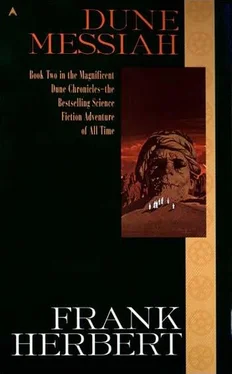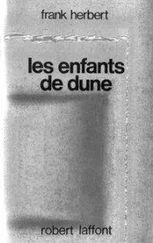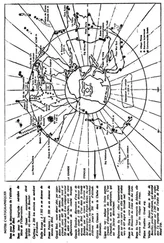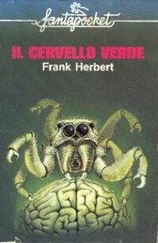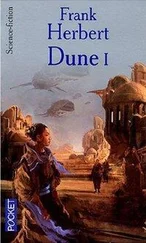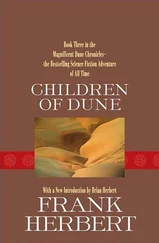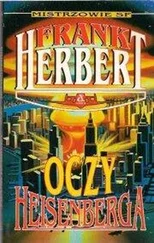Frank Herbert - Dune Messiah
Здесь есть возможность читать онлайн «Frank Herbert - Dune Messiah» весь текст электронной книги совершенно бесплатно (целиком полную версию без сокращений). В некоторых случаях можно слушать аудио, скачать через торрент в формате fb2 и присутствует краткое содержание. Год выпуска: 2008, ISBN: 2008, Издательство: Penguin Group, Жанр: Космическая фантастика, на английском языке. Описание произведения, (предисловие) а так же отзывы посетителей доступны на портале библиотеки ЛибКат.
- Название:Dune Messiah
- Автор:
- Издательство:Penguin Group
- Жанр:
- Год:2008
- ISBN:9781101157879
- Рейтинг книги:4 / 5. Голосов: 1
-
Избранное:Добавить в избранное
- Отзывы:
-
Ваша оценка:
- 80
- 1
- 2
- 3
- 4
- 5
Dune Messiah: краткое содержание, описание и аннотация
Предлагаем к чтению аннотацию, описание, краткое содержание или предисловие (зависит от того, что написал сам автор книги «Dune Messiah»). Если вы не нашли необходимую информацию о книге — напишите в комментариях, мы постараемся отыскать её.
Beginning with Dune and culminating with the masterwork Chapterouse Dune, Audio Renaissance brings a new generation to the classic, epic series that is a landmark of science fiction
Dune Messiah — читать онлайн бесплатно полную книгу (весь текст) целиком
Ниже представлен текст книги, разбитый по страницам. Система сохранения места последней прочитанной страницы, позволяет с удобством читать онлайн бесплатно книгу «Dune Messiah», без необходимости каждый раз заново искать на чём Вы остановились. Поставьте закладку, и сможете в любой момент перейти на страницу, на которой закончили чтение.
Интервал:
Закладка:
“My son!” Paul whispered, too low for any to hear. “You’re … aware.”
“Yes, father. Look!”
Paul sagged against the wall in a spasm of dizziness. He felt that he’d been upended and drained. His own life whipped past him. He saw his father. He was his father. And the grandfather, and the grand-fathers before that. His awareness tumbled through a mind-shattering corridor of his whole male line.
“How?” he asked silently.
Faint word-shapings appeared, faded and were gone, as though the strain was too great. Paul wiped saliva from the corner of his mouth. He remembered the awakening of Alia in the Lady Jessica’s womb. But there had been no Water of Life, no overdose of melange this time … or had there? Had Chani’s hunger been for that? Or was this somehow the genetic product of his line, foreseen by the Reverend Mother Gaius Helen Mohiam?
Paul felt himself in the creche then, with Alia cooing over him. Her hands soothed him. Her face loomed, a giant thing directly over him. She turned him then and he saw his creche companion—a girl with that bony-ribbed look of strength which came from a desert heritage. She had a full head of tawny red hair. As he stared, she opened her eyes. Those eyes! Chani peered out of her eyes … and the Lady Jessica. A multitude peered out of those eyes.
“Look at that,” Alia said. “They’re staring at each other.”
“Babies can’t focus at this age,” Harah said.
“I could,” Alia said.
Slowly, Paul felt himself being disengaged from that endless awareness. He was back at his own wailing wall then, leaning against it. Idaho shook his shoulder gently.
“M’Lord?”
“Let my son be called Leto for my father,” Paul said, straightening.
“At the time of naming,” Harah said, “I will stand beside you as a friend of the mother and give that name.”
“And my daughter,” Paul said. “Let her be called Ghanima.”
“Usul!” Harah objected. “Ghanima’s an ill-omened name.”
“It saved your life,” Paul said. “What matter that Alia made fun of you with that name? My daughter is Ghanima, a spoil of war.”
Paul heard wheels squeak behind him then—the pallet with Chani’s body being moved. The chant of the Water Rite began.
“Hal yawm!” Harah said. “I must leave now if I am to be the observer of the holy truth and stand beside my friend for the last time. Her water belongs to the tribe.”
“Her water belongs to the tribe,” Paul murmured. He heard Harah leave. He groped outward and found Idaho’s sleeve. “Take me to my quarters, Duncan.”
Inside his quarters, he shook himself free gently. It was a time to be alone. But before Idaho could leave there was a disturbance at the door.
“Master!” It was Bijaz calling from the doorway.
“Duncan,” Paul said, “let him come two paces forward. Kill him if he comes farther.”
“Ayyah,” Idaho said.
“Duncan is it?” Bijaz asked. “Is it truly Duncan Idaho?”
“It is,” Idaho said. “I remember.”
“Then Scytale’s plan succeeded!”
“Scytale is dead,” Paul said.
“But I am not and the plan is not,” Bijaz said. “By the tank in which I grew! It can be done! I shall have my pasts—all of them. It needs only the right trigger.”
“Trigger?” Paul asked.
“The compulsion to kill you,” Idaho said, rage thick in his voice. “Mentat computation: They found that I thought of you as the son I never had. Rather than slay you, the true Duncan Idaho would take over the ghola body. But … it might have failed. Tell me, dwarf, if your plan had failed, if I’d killed him, what then?”
“Oh … then we’d have bargained with the sister to save her brother. But this way the bargaining is better.”
Paul took a shuddering breath. He could hear the mourners moving down the last passage now toward the deep rooms and the water stills.
“It’s not too late, m’Lord,” Bijaz said. “Will you have your love back? We can restore her to you. A ghola, yes. But now—we hold out the full restoration. Shall we summon servants with a cryological tank, preserve the flesh of your beloved …”
It was harder now, Paul found. He had exhausted his powers in the first Tleilaxu temptation. And now all that was for nothing! To feel Chani’s presence once more …
“Silence him,” Paul told Idaho, speaking in Atreides battle tongue. He heard Idaho move toward the door.
“Master!” Bijaz squeaked.
“As you love me,” Paul said, still in battle tongue, “do me this favor: Kill him before I succumb!”
“Noooooo …” Bijaz screamed.
The sound stopped abruptly with a frightened grunt.
“I did him the kindness,” Idaho said.
Paul bent his head, listening. He no longer could hear the mourners. He thought of the ancient Fremen rite being performed now deep in the sietch, far down in the room of the death-still where the tribe recovered its water.
“There was no choice,” Paul said. “You understand that, Duncan?”
“I understand.”
“There are some things no one can bear. I meddled in all the possible futures I could create until, finally, they created me.”
“M’Lord, you shouldn’t …”
“There are problems in this universe for which there are no answers,” Paul said. “Nothing. Nothing can be done.”
As he spoke, Paul felt his link with the vision shatter. His mind cowered, overwhelmed by infinite possibilities. His lost vision became like the wind, blowing where it willed.
***
We say of Muad’dib that he has gone on a journey into that land where we walk without footprints.
—PREAMBLE TO THE QIZARATE CREEDThere was a dike of water against the sand, an outer limit for the plantings of the sietch holding. A rock bridge came next and then the open desert beneath Idaho’s feet. The promontory of Sietch Tabr dominated the night sky behind him. The light of both moons frosted its high rim. An orchard had been brought right down to the water.
Idaho paused on the desert side and stared back at flowered branches over silent water—reflections and reality—four moons. The stillsuit felt greasy against his skin. Wet flint odors invaded his nostrils past the filters. There was a malignant simpering to the wind through the orchard. He listened for night sounds. Kangaroo mice inhabited the grass at the water verge; a hawk owl bounced its droning call into the cliff shadows; the wind-broken hiss of a sandfall came from the open bled.
Idaho turned toward the sound.
He could see no movement out there on the moonlit dunes.
It was Tandis who had brought Paul this far. Then the man had returned to tell his account. And Paul had walked out into the desert—like a Fremen.
“He was blind—truly blind,” Tandis had said, as though that explained it. “Before that, he had the vision which he told to us … but …”
A shrug. Blind Fremen were abandoned in the desert. Muad’dib might be Emperor, but he was also Fremen. Had he not made provision that Fremen guard and raise his children? He was Fremen.
It was a skeleton desert here, Idaho saw. Moon-silvered ribs of rock showed through the sand; then the dunes began.
I should not have left him alone, not even for a minute, Idaho thought. I knew what was in his mind.
“He told me the future no longer needed his physical presence,” Tandis had reported. “When he left me, he called back. ‘Now I am free’ were his words.”
Damn them! Idaho thought.
The Fremen had refused to send ’thopters or searchers of any kind. Rescue was against their ancient customs.
“There will be a worm for Muad’dib,” they said. And they began the chant for those committed to the desert, the ones whose water went to Shai-hulud: “Mother of sand, father of Time, beginning of Life, grant him passage.”
Читать дальшеИнтервал:
Закладка:
Похожие книги на «Dune Messiah»
Представляем Вашему вниманию похожие книги на «Dune Messiah» списком для выбора. Мы отобрали схожую по названию и смыслу литературу в надежде предоставить читателям больше вариантов отыскать новые, интересные, ещё непрочитанные произведения.
Обсуждение, отзывы о книге «Dune Messiah» и просто собственные мнения читателей. Оставьте ваши комментарии, напишите, что Вы думаете о произведении, его смысле или главных героях. Укажите что конкретно понравилось, а что нет, и почему Вы так считаете.
